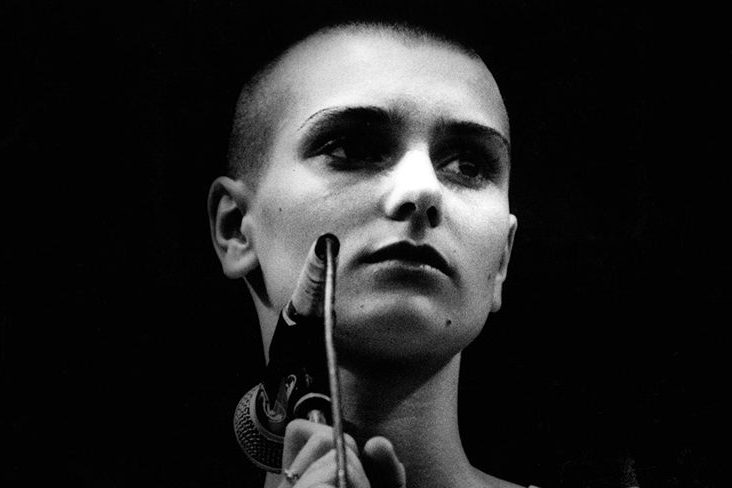You’ve probably stumbled across a heart-wrenching video recorded by Irish pop singer Sinéad O’Connor on Aug. 3 while surfing the internet.
#OneOfMillions
Posted by Sinead O’Connor on Thursday, August 3, 2017
Through tears, O’Connor shakily tells her Facebook followers and friends that she’s been feeling mentally unstable of late, and is one of “millions” of others just like her, who are probably feeling the same way but might not have access to the quality of care she does. (She mentions that she’s got a supportive doctor and psychiatrist.) The video has been followed up by a status update from an anonymous writer on the singer’s page, who tells O’Connor’s friends and followers:
“I am posting at Sinead’s request, to let everyone who loves her know she is safe, and she is not suicidal. She is surrounded by love and receiving the best of care. She asked for this to be posted knowing you are concerned for her. I won’t respond to any questions, so please understand. I hope this comforts those of you were concerned.”
Regardless of the update, the press has jumped on the story, with a number of awkward, clickbait-y headlines that make O’Connor out to be some helpless hermetic pariah, living alone in a New Jersey motel, death’s doorstep right around the corner.
To borrow a curse word from the Irish, this is just the type of shite we’ve come to expect from certain areas of the online news media—the type that pats victims on the hand, who are clearly in pain and suffering greatly, and says, “There, there”; all the while raking in the advertising dollars from all those clicks from people searching for the next big public meltdown by an artist. There’s nothing like a cry for help to get business up and running.
And while I’m not going to sit too high on my horse here at RealClearLife, because after all, I’m part of the news media and clicks are our bread-and-butter, I will say this: Sinéad, if you happen to ever read this post, I listened to your heartfelt words, am concerned by them, and want you to know that I care.
Let me get this out of the way up front: I’ve neither met nor interviewed Sinéad O’Connor. But I feel like I know her, at least on some visceral level. I vividly remember hearing her best known hit, “Nothing Compares 2 U”—a song written by the late, great Prince—on the radio and MTV, when I was a kid. (The tune exploded in 1990, so that would’ve made me 10.) It’s a gut-punch of a breakup song that only someone who has the vocal and emotional maturity of O’Connor was able to pull off, and pull off she did. It went all the way to No. 1 in the U.S., as well as a panoply of other countries.
Though I admit I’ve only listened to a choice few other songs O’Connor has recorded since, I’ve seen her name in the news from time to time throughout the years—mostly, with the same bitter, negative spin I read in some of those headlines out there in cyberspace. She famously tore up a photo of the pope on Saturday Night Live—and was a woman—which likely led to that general bias.
But that’s not the point.
The point here is that O’Connor bravely cried out for help—in fact, was simply able to do it and accomplish it, and that’s commendable. No, it’s downright heroic.
Another admission: I took the recent suicides of Chris Cornell and Chester Bennington—both of whom I had to write about for RCL in basic real-time—rather hard. I was a big fan of Cornell’s band Soundgarden, as well as his solo work, which included a James Bond theme song (if you’ve been reading my RCL bylines, you know how obsessed I am with all things Bond); and throughout the years, enjoyed a number of Linkin Park tunes (“In the End” was a particular favorite; take a listen above).
In the aftermath of reading about, writing about, and swallowing the news about Cornell and Bennington’s untimely deaths, I was left grasping for straws, asking this question over and over again in my mind: How could these men, with seemingly everything—fame, fortune, friends, followings—feel so alone as to take their own lives? And how come none of us were able to see the warning signs before they manifested themselves? Neither man left us a single video or status update or tweet that said “help me,” and that made it all the harder to swallow.
Not to mention, that sort of silence reminded us all of others like Kurt Cobain and Robin Williams, who both took their own lives and left millions asking the same questions.
While I can’t come close to knowing what either man felt like at the end—or even what O’Connor is feeling right now—I have gone out of my way in recent years to tackle my own mental health issues head on, and know that not only is it totally fine to have them, but there’s also an amazing amount of support out there that can help and have helped. (I urge you to read posts like this recent one from NME; or just go and read a few of my own hyper-personal, self-published posts about my own mental health struggles on my LinkedIn page. Hopefully, they’ll help, if you’re hurting.)
If Cornell and Bennington’s deaths didn’t show you that there’s a major mental health crisis in the world right now—one that is affecting some of our best and brightest stars—maybe O’Connor’s video will.
Whether you’re looking to get into shape, or just get out of a funk, The Charge has got you covered. Sign up for our new wellness newsletter today.
























